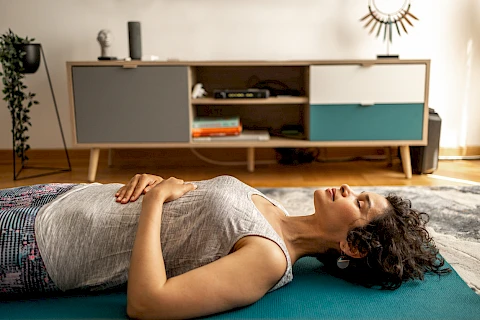
We all experience stress and negative emotions at different times in our lives. As a caregiver, learning to manage these feelings can improve your well-being, enabling you to offer better quality care to your senior loved ones. Breathing exercises can be an excellent way to reduce stress and irritation and help manage your emotions.
The Science Behind Breathing Exercises
Deep breathing can have a significant impact on your nervous system. It helps activate the parasympathetic nervous system, which promotes relaxation and helps decrease stress. Deep breathing reduces cortisol levels, a hormone associated with stress.
Taking deep breaths increases the oxygen flow to your brain, making you feel more alert and less anxious. Controlling your breath can also help you regulate your emotions, making stressful situations easier to handle.
Easy Breathing Exercises for Stress Relief
Breathing exercises are a powerful and accessible way to manage stress and promote relaxation. Easy to learn and can be done anywhere, they are an ideal addition to any stress management strategy.
Exercise 1: Diaphragmatic Breathing
This breathing exercise helps lower heart rate and blood pressure, creating a calming effect. Start by sitting or lying down in a comfortable position. Place one hand on your chest and the other on your abdomen. Inhale deeply through your nose, keeping your chest relatively still as your abdomen rises. Exhale slowly through your mouth, letting your abdomen fall. Repeat this process for five to ten minutes.
Exercise 2: 4-7-8 Breathing Technique
This technique can help reduce anxiety and promote a sense of calm. It’s best to do the exercise while sitting or lying down comfortably. Close your eyes if you prefer. Inhale quietly through your nose for four seconds, hold your breath for seven seconds, and exhale through your mouth for eight seconds. Repeat this cycle four to eight times. Consider using a timer to keep track of the seconds.
Exercise 3: Box Breathing
Box breathing helps reset your breath and improves focus and concentration. To perform, sit up straight and begin by inhaling through your nose for four seconds. Hold your breath for four seconds, then exhale slowly through your mouth for four seconds. After exhaling, hold your breath for four seconds and repeat this cycle at least four times. Practice this during quiet times to make it a habit. Incorporate into daily routines, like before sleeping or after meals.
Exercise 4: Alternate Nostril Breathing
This technique helps promote a sense of balance and can relieve mental tension. Sit comfortably and use your right thumb to close your right nostril. Inhale deeply through your left nostril, then close the left nostril with your right ring finger. Release the right nostril and exhale through it. Do the same thing with your left nostril. Continue this pattern for several minutes to help balance and calm your mind.
Experience Quality In-Home Support With Senior Helpers
Breathing exercises are a simple yet powerful tool for managing caregiver stress and negative emotions. You can even introduce these exercises to senior loved ones so they can also enjoy its calming benefits. Remember to consult the senior’s doctor before introducing new exercise routines.
If you’re looking for personalized support and caregiving services for a senior loved one in Burnsville, Saint Paul, Cottage Grove, and Hastings, Senior Helpers Burnsville can help. We offer professional in-home senior care tailored to your loved one’s unique needs. Contact us to learn more!